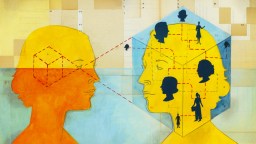Ben Goertzel: There’s aspects, yes. AGI has aspects of computer science, mathematics, engineering, philosophy of mind, linguistics, neuroscience. It’s quite cross-disciplinary, and the education system isn’t really that way. It’s more that way in the U.S. than anywhere else on the planet actually. That’s a strength the U.S. has. Here as an undergraduate, you can at least take courses in every department. And in many countries, that’s not true.
But even in the U.S., the education system is not nearly as cross-disciplinary as it should be for grappling with a problem like AGI or with say quantum computing or nanotechnology or a lot of other cutting edge things.
So what that means is if someone wants to really work in one of these cutting-edge topics that has the highest probability of transforming the world, if they want to work on these things in the core capacity, they have to take their own time to study a bunch of other fields that they didn’t learn in school. And that also takes time. You can’t do that by reading a blog post. I mean you’ve got to, you know, take out a neuroscience textbook and go through it step by step. And not everyone has the patience for that.
But again some people do, and I’d say Coursera, Udacity, and MIT, the many universities that have put their courseware online have been a huge, huge asset in this process because those help lead people through the process of learning information from all the different disciplines that they need to attack something like AGI. We found these online courses incredibly useful in what we’ve been doing in Ethiopia.
So in 2013, I co-founded with two others Ethiopia’s first AI and robotics development company. So we do some original R&D, some projects aimed at helping the African situation. Then a bunch of software and robotics outsourcing. The company is called iCog Labs based in Addis Ababa. And we have an internship program which we use for recruiting.
So we take dozens of undergrad students each year and what we do is we give them some hands-on lessons in OpenCog and various other AI tools. We also have each of them take like seven Coursera courses. And they go through them very quickly and they teach them neuroscience, computational linguistics, bioinformatics, machine learning, a bunch of topics that are not offered in the university there.
And this works much better than giving them a bunch of textbooks to read because it gives them a process and a community to enter into. It not only teaches them information but it weeds out people who don’t have the persistence to slog through stuff from a bunch of different disciplines and really stretch their brain in a deeper cross-disciplinary way.
So yeah, I’d say, as with everything else there’s pluses and minuses all tangled up, right? I mean the modern way of doing things in some ways eliminates people’s attention span because nobody has to think for themselves. They immediately look up the answer on the internet or download something instead of trying to solve a problem themselves.
On the other hand, there’s so much high-quality educational material out there together with supportive communities for people who do want to plunge in deeper and get a more foundational understanding.
But what we do in OpenCog is we’ve worked out a system where each of the cognitive processes can help the other one out when it gets stuck in some combinatorial explosion problem. So if a deep neural network trying to perceive things gets confused because it’s dark or it’s looking at something it never saw before, well maybe the reasoning engine can come in and do some inference to cut through that confusion.
If logical reasoning is getting confused and doesn’t know what step to take next because there’s just so many possibilities out there and not much information about them, well, maybe you fish into your sensory-motor memory and you use deep learning to visualize something you saw before, and that gives you a clue of how to pare through the many possibilities that the logic engine is seeing.
Now you can model this kind of cognitive synergy mathematically using a branch of mathematics called category theory, which is something I’ve been working on lately.
But what’s really interesting more so is to build a system that manifests this and achieves general intelligence as a result, and that’s what we’re doing in the OpenCog project.






